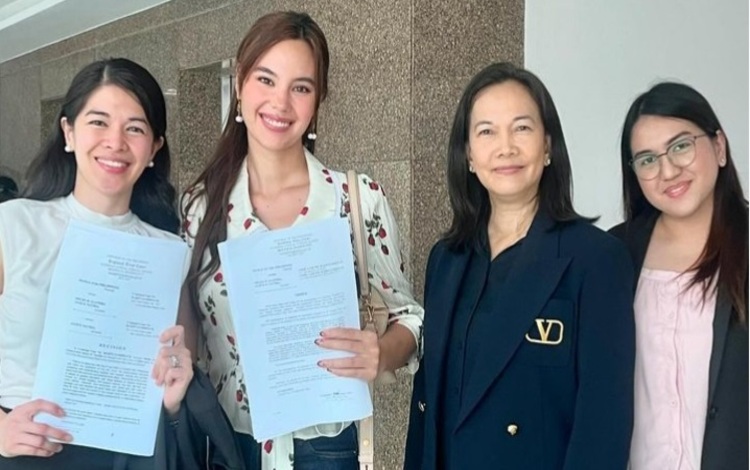Bulgar tabloid editor Janice Navida and columnist Melba Llanera have been found “guilty beyond reasonable doubt” in a libel case filed by Miss Universe 2018 Catriona Gray. In addition to this, Navida was also convicted of cyber libel for publishing false information regarding the alleged circulation of Gray’s “nude photos.”

The verdict was handed down on Friday, September 20, 2024, at the Quezon City Regional Trial Court. Both Gray and the defendants, Navida and Llanera, attended the hearing along with their legal counsel. The court’s 12-page resolution, penned by Acting Presiding Judge Evangeline Cabochan-Santos, concluded that the Bulgar publication’s report was defamatory and malicious.
According to the court’s decision, libel carries the penalty of “prison correctional in its minimum to medium periods,” which translates to imprisonment from six (6) months and one (1) day to four (4) years and two (2) months. Meanwhile, cyberlibel has a penalty ranging from “imprisonment of six (6) months and one (1) day as minimum, to five (5) years, five (5) months and eleven (11) days as maximum,” as stipulated under the Revised Penal Code.
The controversy stemmed from a Facebook post by Bulgar on July 18, 2020. The post included the caption, “After ng bantang pasabog ni Clint… NUDE PHOTOS NI CATRIONA, KALAT NA!” accompanied by images of a topless woman and another woman in a swimsuit. The following day, on July 19, 2020, a similar article with the same title and photos was published in the print edition of Bulgar.
During the prosecution’s investigation, Gray identified herself as the woman in the swimsuit, explaining that the images were taken from a TV commercial for a clothing brand. However, she vehemently denied being the topless woman shown in the other image. The beauty queen expressed that the false portrayal deeply affected her, as it implied she was the “half-naked woman with breasts exposed” seen in the viral photos.
Navida and Llanera defended their actions by claiming that the article was originally about cryptic social media posts made by Gray’s ex-boyfriend, Clint Bondad, which had sparked speculation online. Before publishing, they added details about the alleged “nude photos” of Gray, believing it was part of a larger “black propaganda” campaign against her. Despite their doubts about the photos’ authenticity, they decided to proceed with publishing both the images and information without verifying the facts.
Judge Cabochan-Santos ruled that all four elements of libel and cyber libel were present in Bulgar’s report. She noted that the headline and Facebook post’s caption were “defamatory” and filled with malice. The judge also questioned why Navida and Llanera chose to publish the article, given their suspicion that the images circulating online were likely false.
The court criticized the defendants for failing to provide sufficient evidence proving that they made efforts to verify the truth before publishing the defamatory post and article. Instead, the judge stated, the two opted to capitalize on the situation to attract social media engagement and increase sales. As a result, both Navida and Llanera were found guilty beyond a reasonable doubt.
Navida was convicted of cyber libel for posting the teaser on Facebook, as well as libel for her role as the editor who approved the tabloid article. Llanera was also found guilty of libel for writing the article that contributed to the false allegations.
